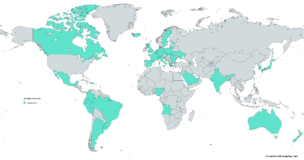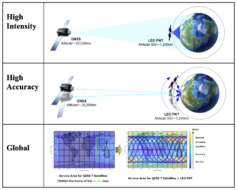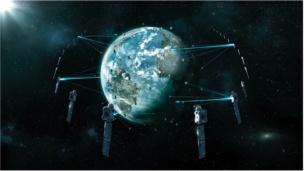SpaceX plans to provide Starlink satellite internet access to the UN and internationally recognized aid organizations working within Gaza despite objections from the Israeli government.
Elon Musk shared that he would make Starlink service available amid reports of widespread internet and cell outages in Gaza due to Israeli bombing and ground operations in the area. Internet connectivity was reportedly partially restored by Monday.
Israel comments: Israel’s communications minister Shlomo Karhi responded to Musk’s Starlink offer, writing, “Israel will use all means at its disposal to fight this. Hamas will use it for terrorist activities.”
Karhi concluded by threatening to cut ties with Starlink, which is not currently available to the Israeli public. However, Karhi had previously said the country was working to get Starlink comms up and running in towns near the conflict line.
Social diplomacy: Elon responded stating that SpaceX will confirm humanitarian use through “extraordinary measures,” including “a security check with both the US and Israeli governments before turning on even a single terminal.”
- Musk said no terminals in the Gaza region have attempted to communicate with the Starlink satellites.
SpaceX in geopolitics: Starlink has become an increasingly important tool in conflict areas, putting SpaceX in the unusual position of making important geopolitical and wartime decisions.
Last year—with the Ukrainian military comms network relying heavily on Starlink—SpaceX declined a request from Kyiv to enable previously restricted connectivity in Crimea ahead of an attack due to US sanctions on Russia. SpaceX also turned on Starlink services in Iran in 2022 in an effort to promote internet freedom.




